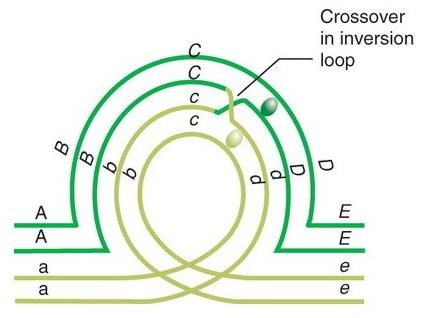What happens to the inner diameter of the walls of the respiratory tract as it moves down from the upper conducting zone to the lower respiratory zone?
A) increases
B) thins
C) decreases
D) no change
E) thickens
Ans: C) decreases
You might also like to view...
Each nucleotide in a strand of DNA is composed of a(n) ____________________, a(n) ____________________, and a(n) ____________________
Fill in the blank(s) with correct word
All protists have:
a. chloroplasts only b. nuclei only c. mitochondria only d. both nuclei and mitochondria e. chloroplasts, nuclei, and mitochondria
Which gamete genotypes are expected to contribute to viable offspring when an individual is heterozygous for a pericentric inversion and crossing-over occurs as shown in the diagram? (The ? symbol represents a centromere.)(Select all that apply.)

A) ? A B C D E
B) ? A B C d a ?
C) ? a d c b e
D) e b c D E
E) ? A B C d e
F) A B C ? d a
G) e b c ? D E
H) A B C ? D E
J) a d ? c b e
Stems that grow along the soil surface and sprout new shoots at their nodes are
A. ubers. B. tendrils. C. rhizomes. D. stolons. E. rhizoids.